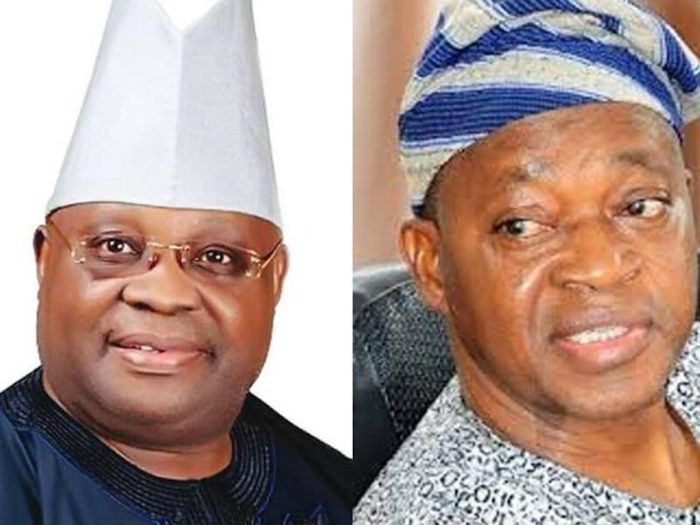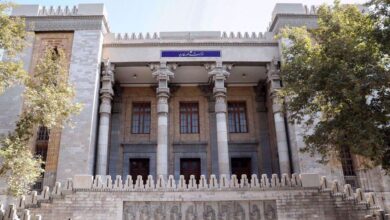OSUN ELECTION: Thank God for BVAS

By ADEDEJI ADEBAYO
“Where the number of votes cast at an election in any polling unit exceeds the number of accredited voters in that polling unit, the Presiding Officer shall CANCEL THE RESULT OF THE ELECTION IN THAT POLLING UNIT (emphasis mine).”
The election petition of the All Progressives Congress and its candidate, Governor Adegboyega Oyetola, is now having a life of its own because grounds pleaded by them now appear unassailable for the respondents to vitiate.
The latest in the Replies to the Petition is that of candidate of PDP, Ademola Adeleke. I read how Adeleke struggles to prove a point in his hopeless defence against an allegation that election results were manipulated to favour him.
Recall that the petitioners ( APC and Oyetola) on 29th July, 2022, 13 days after the election was conducted, obtained from the 1st Respondent, INEC, a certified true copy of BVAS report of the election where they identified over-voting in 749 polling units.
The petitioners were shocked to learn that INEC, many days after it issued them the CTC of the BVAS report and against known standards, issued a sharply different CTC of BVAS report to Ademola Adeleke.
They believed INEC, under the law, cannot deny the correctness of the contents of the document it previously issued to them. It is this allegation, among others in the Petition, Adeleke laboured to rationalise in his reply filed September 12 at the Tribunal. In one breath, he agrees the BVAS is mandatory in the conduct of the election. In another breath, he wants the tribunal to discountenance the claim of the petitioners as to non-compliance to rules guiding the use of the device.
He holds that INEC staff and agents deployed on the election day made mistakes by failing to upload appropriately record of voters, as mandated by the extant laws, but he opines “it is not the intendment of the Electoral Act 2022 to penalise a person whose election is questioned by inaction or mistake of the Agents of the 1st Respondent (INEC) in not properly reflecting or uploading that data duly captured in the BVAS…used for an election.”
Let me also quote from his ridiculous Defence in relation to the foregoing: ” BVAS is a technology implement which works effectively upon instant availability of network at the point of upload of the captured information by the device. Where the accreditation captured in the machines are not fully uploaded, the database of the 1st Respondent can’t be a conclusive reflection of the number accredited voters.”
“…where the battery of the device is discharged,” he affirms further, “the information may only be uploaded when it is recharged. Thus data not instantly transmitted or uploaded as a result of unavailability of network or the disposition of the Presiding Officer remain in the BVAS machine and may still eventually be uploaded.”
Here, Adeleke attempts to explain away the inability of the electoral body to upload voters’ data, in 749 polling units, on the failure of network. To him, technical and mechanical hitches were responsible for incomplete loading of results to the BVAS machines. How disingenuous could this claim be! How, on the same day, could INEC Results Viewing Device ( IRev Device), equally integrated to the BVAS machine, function effectively for the upload of statements of results of poll from polling units? Were different devices deployed for this purpose?
Elsewhere in the Reply, Adeleke pleads that the legitimate votes cast, after valid accreditation, ” cannot be voided by reason of the allegation that few votes in excess of the reflected numbers, (even on the BVAS,) were recorded in the result sheet.” He avers that it is the responsibility of APC and Oyetola to ascertain the votes which qualify as unlawful and cast by persons who were not duly accredited to vote because ” The Electoral Act 2022 does not contemplate the voiding and deductions of votes validly cast by duly accredited voters.”
The highpoint of Adeleke’s claim is where he maintains that “…where over-voting occurs in a particular poling unit by a few voters, rather than voiding multiple valid votes duly cast by accredited voters and duly captured in the BVAS machines and Report, the most that can validly and eventually be done after declaration at election is to void the extra votes and subtract the few votes from the total score of a candidate with the majority of votes in a particular unit.”
Is this claim not a confirmation that election in the controversial polling units, as strongly held by the petitioners, was fraught with over-voting? Is the respondent inadvertently not saying that if the tribunal should deduct votes in some units where he and his party rigged, they would still have have won the contest?
How tenable, under the law, is his position that irregular votes should be scanvaged and isolated from the “main” votes? Is there any provision in the electoral act that excuses over-voting? Let’s turn to Section 51 (2) of the Electoral Act 2022 for explanation:
” Where the number of votes cast at an election in any polling unit exceeds the number of accredited voters in that polling unit, the Presiding Officer shall CANCEL THE RESULT OF THE ELECTION IN THAT POLLING UNIT (emphasis mine).”
Does the above clause contemplate “extra” and tainted votes be subtracted from “the total score?” Does the Electoral Act enburden the petitioners to “shop” for unlawful votes cast by persons not duly accredited to vote…? The Tribunal in the days to come will, no doubt, provide the needed answers to the concerns.









